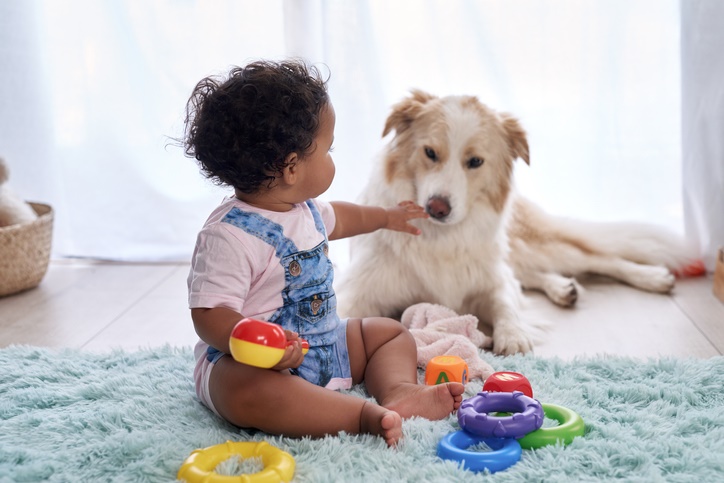
Despite calls to cancel the programme, Channel 4 in the UK aired a new documentary “Train Your Baby Like a Dog” on August 20. To give a brief synopsis of the show, an expert dog trainer (yes, a dog trainer) told parents to use dog training techniques with their young children to shape their behaviour.
This included putting a child in a different room when they “misbehaved” and bribing them with treat foods to encourage good behaviour – including sitting obediently on the floor like a dog and being called a good boy or girl.
It may sound ludicrous, but there could be serious consequences for parents repeating this advice. Babies and toddlers need loving support to help them understand and regulate their emotions and behaviour as they grow and learn. They can’t help their “challenging” behaviour – such as waking at night or crying. Babies only have so many ways of communicating and processing what is going on around them.
Must read: "What is your biggest regret about how you raised your kids?": Parenting advice from moms and dads who've been there
No one particularly relishes another sleepless night or trying to soothe an inconsolable baby. But how to best deal with this? Well, in contrast to this programme’s advice, evidence suggests that when parents are responsive to their child’s needs – by recognising when a child is tired and needs help sleeping, or is overwhelmed and needs help calming down – their children go on to have fewer behavioural problems, higher IQ scores and better social interactions with their peers.
When the needs of babies and children are met in a gentle way, they feel secure and develop confidence and self assurance. Meeting their needs with empathy appears to help them develop their own empathy and emotional intelligence.
Also read: Is Panda Parenting the secret to the success of Gugu Gumede, Atandwa Kani, Aisha Pandor and Elon Musk?
Dog training techniques teach children that parental praise or displeasure is contingent on how they act, without helping them understand their behaviour. When children are raised to understand they’ll be rejected if their behaviour doesn’t meet sufficient standards, they’re more likely to develop higher levels of anxiety and other emotional problems. It’s not surprising - they worry they can be rejected or adored based on their behaviour, but are never quite sure why. Using treats to shape behaviour meanwhile sets children up to develop an unhealthy relationship with food, increasing their risk of obesity.

Some may dismiss the advice in this show, but its strategies aren’t dissimilar to some popular baby and toddler care books. These suggest only feeding at set times, allowing your baby to cry without giving comfort and refusing to make eye contact if they wake at night. Not only does this fly in the face of research which supports responsive parenting, but the techniques they recommended discourage maternal behaviours that we know help keep babies safe and healthy.
Also read: Parent-shaming is nothing new, and helicopter parents are the new target
In our research, we found that the advice given in these books prompted mothers to delay responding to their baby’s cries, which can increase levels of infant stress hormones. It also encouraged parents to put their baby to sleep in another room, against safe sleep guidance, and even spurred them to reduce how much they cuddled their baby.
Not only were these techniques harmful, but they only worked in getting infants to sleep around 15–20% of the time. When they didn’t work, mothers felt even more anxious and frustrated than before, with some saying that they felt like a failure. Mothers who used the guidance had higher levels of stress and depression.
Why do parents feel so stressed and isolated that they think treating their baby like a dog is a good idea? It says a lot about the pressures families are under today. Surely, a better solution to treating a baby like the family pet would be to teach parents the importance of responsive care and help them create the environment they need to do that?
Instead, parents are told not to meet their child’s normal emotional needs with love, but to treat them as an inconvenience that can be trained out of them.![]()
Amy Brown, Professor of Child Public Health, Swansea University
This article is republished from The Conversation under a Creative Commons license. Read the original article.
Chat back:
Share your story with us, and we could publish your letter. Anonymous contributions are welcome.




 Publications
Publications
 Partners
Partners











